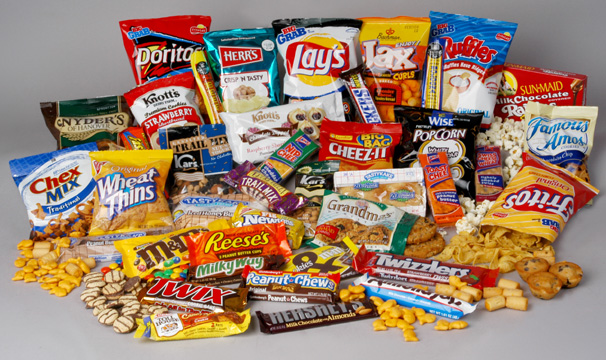Sleeping Less Than 6 Hours Increases Processed Food Consumption
I don't know about you, but whenever my sleep is restricted, my hunger is through the roof the following day. I can't say no to anything, especially if there are snacks in the house. I mentioned this effect to my clients, and they confirmed similar findings in themselves.
So what gives?
Why does hunger spike after a poor night of sleep?
To solve the problem, I did what any millennial would do; I headed to Google. Here's what I found.
By the end of this post you will know how to say no to these foods.
Sleep Restriction Studies
Recent research has shown a correlation between a lack of sleep with increased consumption of sugary, caffeinated beverages (1). The study analyzed data from 18,799 adults who self-reported sleep durations and completed two 24 hour dietary recalls.
Out of the 18,799 adults, 13% slept five hours or less. The people who slept five hours or less had a 21% increase in sugary, caffeinated beverages. Sound familiar?
In another study, eleven healthy participants took part in two 14-day laboratory stays where they were given access to as much food as possible with either 5.5 hour or 8.5-hour sleep schedules. The study's goal was to measure and compare calories consumed from meals and snacks between the two sleep schedules.
By the end of the study, the scientists found that the sleep-restricted group had consumed significantly more calories from snacks and consumed a higher percentage of carbohydrates before bed (2). From these results, the scientists concluded that a sleep-restricted schedule in an obesity-promoting environment (aka our current climate) might cause excessive consumption of calories from snacks but not meals(2).
The scientists also measured the subjects' ghrelin (hunger hormone) levels. However, there was no difference between the groups. This lack of ghrelin could explain why the meal frequency did not increase.
But if the hunger hormone didn't increase, why did they find a significant difference in snacking between the sleep schedules?
Sleep Deprivation Increases Snacking
Thirty subjects took part in a study where they followed two different sleep schedules. The first phase required the subjects to sleep four hours per night, while the second phase required nine hours.
Each phase lasted six days, and on the last day, functional magnetic resonance imaging (fMRI) was used to determine how the subjects' brains reacted to food. The results showed increased neural activity in response to food after sleep restriction (3). Also, they found increased activation in brain regions responsible for reward and pleasure in the sleep-restricted group (3).
I believe the increase in pleasure-seeking behavior could be the reason why they consumed more calories from snacks. Based on the studies above, a lack of sleep will put you at a higher risk for increased snacking. So put down the phone, turn off the television, and get your eight hours of sleep.
References
Prather, A. A., Leung, C. W., Adler, N. E., Ritchie, L., Laraia, B., & Epel, E. S. (2016). Short and sweet: Associations between self-reported sleep duration and sugar-sweetened beverage consumption among adults in the United States. Sleep Health, 2(4), 272–276. https://doi.org/10.1016/j.sleh.2016.09.007
Nedeltcheva, A. V., Kilkus, J. M., Imperial, J., Kasza, K., Schoeller, D. A., & Penev, P. D. (2009). Sleep curtailment is accompanied by increased intake of calories from snacks. The American journal of clinical nutrition, 89(1), 126–133. https://doi.org/10.3945/ajcn.2008.26574
St-Onge, M. P., McReynolds, A., Trivedi, Z. B., Roberts, A. L., Sy, M., & Hirsch, J. (2012). Sleep restriction leads to increased activation of brain regions sensitive to food stimuli. The American journal of clinical nutrition, 95(4), 818–824. https://doi.org/10.3945/ajcn.111.027383
